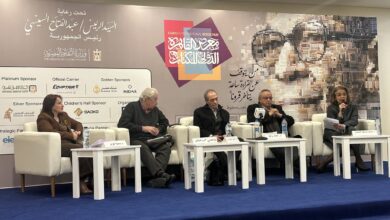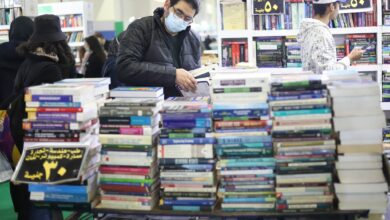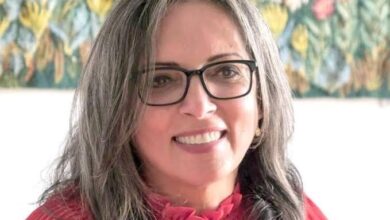There is, perhaps, an upside to novelists laboring in relative obscurity.
While a recent Christian-Muslim unity concert in Alexandria was cancelled for “security reasons,” and films that deal with sectarian issues must struggle against a censorship board eager to prevent the appearance of disunity, literary works have had comparative freedom.
This is freedom, of course, up to a point: The government still reserves the right to pull books from shelves, as it did with Magdy al-Shafee’s graphic novel “Metro.” Individual hackers and hesba lawyers have made authors’ lives difficult, and sometimes frightening, for writing about religion. And authors surely have not forgotten that Naguib Mahfouz was stabbed in the neck in 1994 for his portrayal of religious figures in “Awlad Haretna” (“Children of Gabalawi”).
Arabic literary scholar Rasheed al-Enany has noted that these factors have created an atmosphere of self-censorship on religious topics that’s even more significant, he says, than the threat of imprisonment. Indeed, it’s possible that many Egyptian authors don’t realize the extent to which they censor their writings on religion.
Still, some space to create new works does exist.
Although Mostafa Elsayaad, one of the co-authors of the new satiric novel “Astigmatism fi Mokh” (Astigmatism in the Brain), said “of course first we were worried” about publishing a book about Egypt’s sectarian tensions, he was pleasantly surprised by the support and encouragement of the book’s publisher.
The book, which was released last month, is somewhat of a novelty in that it has two authors: Mostafa Elsayaad (a Muslim) and Mena Shenoda (a Christian).
Elsayaad says that he did research and reading before he wrote his part of the book, choosing to write in the satiric style now popular with young readers, “as it is close to their language and way of thinking…[and] it's the most fit style to talk about such a serious issue in an [engaging] and even funny way.”
But not everyone has loved the new book.
“The public reaction varied,” Elsayaad said, “from people who loved the book to those who criticized it as…a fraud and sort of fake or fabricated truth.” But the book is nonetheless making its low-key rounds in bookstores.
More serious novels portraying Muslim-Christian relations, such as the historical novel “Al-Bashmouri” (The Man from Bashmour) by Salwa al-Bakr and Bahaa Taher’s “Aunt Safiyya and the Monastery,” have generated flaps of controversy. But other novels that show a difficult side to Muslim-Christian relations, such as Bahaa Abdelmeguid’s 2001 novella, “St. Theresa,” have not rated much of a fuss at all.
“St. Theresa,” a bold narrative set in post-1967 Egypt, examines the beginnings of contemporary sectarian tensions. It flatters neither the Coptic nor the Muslim communities, and explores—among other things—a sexual relationship between a married Coptic woman and a Jewish man.
Even Youssef Ziedan’s famous “Azazel,” which angered the Coptic community and engendered hesba lawsuits from both Muslim and Coptic attorneys, has remained a solid bestseller. “Azazel,” which won the 2009 International Prize for Arabic Fiction, follows a fifth-century monk named Hypa as he witnesses difficult times in the history of the Alexandria church. Ziedan’s new novel, “Al Nabati” (The Nabataean) also follows a Coptic protagonist, Maria, during a fraught historical period.
It’s likely that Ziedan has been afforded more freedom to talk about religion because he’s perceived as someone who writes about Coptic rather than Muslim history. The strongest critics of “Al-Bashmouri,” according to critic Ibrahim Fathi, were upset because they mistakenly believed it dealt with the era of the Rightly Guided Caliphs.
Publishers say that, if there’s a red line that would give them pause in printing books about the Coptic community, it’s in the realm not of fiction, but of nonfiction. It would be a book like Karima Kamal’s “Coptic Divorce,” or a book that dealt with the relationship between Copts and the government.
Yet surely there are bold new novels on religious topics waiting to be written. Elsayaad said he feels that “Egyptians are ready to talk [about] religious issues…but the dilemma is they have to talk with someone who is well-educated, fair, and neutral, [and such people] are very rare.”
One might also add “brave” and “self-critical” to that list. Author Khaled Al-Khamissi, author of the best-selling “Taxi,” has been one of the few to go beyond slogans and talk about specifics in the rise in sectarian tensions. As he said at a recent unity event, “We must acknowledge that there’s a real problem.”




